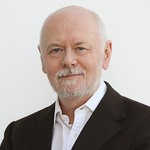Blog
From the Editor's Desk (April 2015)
So we have reached April. The year is starting to move fast. I’m writing this from New York, having just participated in an event on the sustainable development goals, organized by UNU’s Institute for Environment and Human Security, Bonn, together with the German Research Foundation. The German mission to the UN hosted the conference, which took place amidst the continued UN processes on the SDGs. The marriage of sustainability and development is of course one of the major challenges of our time, since the old development model will no longer do.
In this Angle senior research fellow Channing Arndt reflects on the economic principles underlying approaches to climate change. He asks whether the ‘polluter pays’ principle works in the context of the challenges we face due to our warming planet. Channing has led much of our work on climate change over the last few years, and is now active on Africa’s energy challenges, working with research fellow Nadia Ouedraogo, who recently joined UNU-WIDER.
In the VIDEOAngle Murray Leibbrandt of the University of Cape Town discusses inequality in South Africa. Murray is one of South Africa’s foremost researchers on the issue, and discussed South Africa and its challenges during UNU-WIDER’s conference last year on inequality.
This month’s RESEARCHAngle brings you news of two recent WIDER Working Papers. The first is by Alice Krozer on measuring inequality. Alice notes that the most common measure, the Gini, overemphasizes changes in the distribution’s middle, whereas most people are interested in what is happening at either extreme (the very wealthy or very poor). She then discusses ways to better capture these extremes. One finding is that in many countries the income share of the top 5% is very much larger than the next 5%. We live in a very unequal world. There is a whole bunch of papers from last year’s inequality conference on our website, and you can still watch the conference sessions on our YouTube channel.
The second paper featured in RESEARCHAngle is by one of the foremost experts in the field of inequality, Tony Atkinson. Tony discusses the colonial legacy for African inequality, and how inequality has transmitted itself down time—some fifty or more years since the first countries became independent. Tony’s work was one of the inspirations for us setting up the World Income Inequality Database (WIID) some twenty years ago.
In ARCHIVEAngle we have Ravi Kanbur on the end of history. This is a piece from 2001 (we are running a number of these to celebrate our 30th year). Ravi, from Cornell University, is a UNU-WIDER board member, and has contributed to many of our projects in the past, notably with Tony Venables on spatial inequality. Ravi also participated in some of the earliest project meetings and conferences of the Institute.
Do check out the UNU-WIDER working paper series—it covers many issues and topics ranging from state capability in Africa, to the impact of trade liberalization in Asia, to the impact of development on poverty and inequality in Latin America. We do try to research the main developing regions, though it is a big world out there, so we cannot promise to have published research on every country. But we are trying our best.
UNU-WIDER director Finn Tarp and I have been working on aid policy and the macroeconomic management of aid. We recently edited a special issue of the journal World Development on these topics, and it is open access. If you missed the launch in Delhi of our newly published work on food price shocks then you can get a report-back from Roger Williamson here. The project was a collaboration with Cornell University and was led by Per Pinstrup-Andersen.
We have become very active twitter users, and this is one of the best ways to follow news from the Institute via @UNUWIDER as well as work by research fellows. Our new colleague Tulio Cravo from Brazil can be found via @TulioCravo. And Smriti Sharma from India can be followed via @smriti106. There are now more colleagues on twitter, but I’ll come back to them next month. So, happy tweeting, and see you again in May with the next issue of Angle. Meanwhile, Finland celebrates theVappu (May Day) festival on 1st May marking springtime, typically with boisterous student assemblies and workers’ rallies.
 Join the network
Join the network

